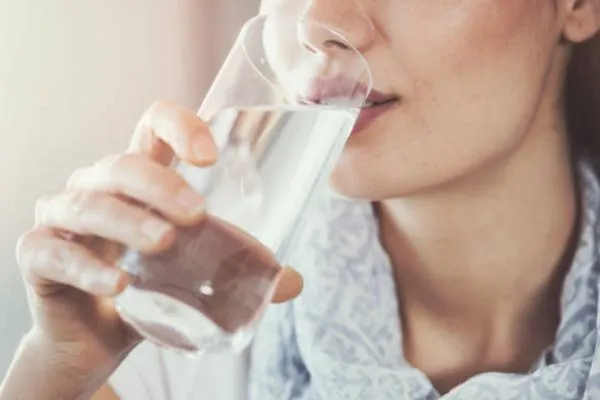Creatinine is a waste product that is created when you use your muscles. Eating lots of protein can also produce small amounts of this organic compound.
Your bloodstream carries creatinine to the kidneys, where the body filters it through urine. However, if your kidneys are not working properly, the level of creatinine in your blood may increase.
Your doctor may check your blood and urine for creatinine, as well as order other tests to evaluate the health of your kidneys. The normal level depends on your age, gender and body size.
High creatinine levels can be a sign of kidney disease.

You may need a creatinine test if you have these symptoms:
- changes in urination (frequency, pain, foaming or blood)
- muscle cramps
- fatigue
- nausea or vomiting
- puffiness around the eyes
- swelling of the feet or ankles
Your doctor may also recommend regular creatinine testing if you have any of the following conditions that may contribute to decreased kidney function:
- diabetes
- high blood pressure
- thyroid disease
- autoimmune diseases
- bacterial infection of the kidneys
- blocked urinary tract
- family history of kidney disease
Creatinine levels may also rise temporarily due to strenuous exercise or the use of certain medications such as sulfamethoxazole, trimethoprim, or chemotherapy drugs.
Furthermore, pregnancy or a diet high in red meat can also contribute.
Your body needs to clean the blood in order to function optimally. The best way to lower creatinine levels is to treat the underlying cause.
If your blood creatinine is high, it’s important to work with your doctor to develop a treatment plan to address any health problems that could be harming your kidney function.
Along with your medications and other treatments, ask your doctor if the following lifestyle changes are right for you.
Here are 8 natural remedies to lower blood creatinine levels.
how to naturally reduce blood creatinine levels
1. Do not take supplements that contain creatine
Creatine is a natural compound made in your liver. It is transported to the muscles where it is used for energy. Creatine that is not used as energy is converted into creatinine, a waste product.
In addition to its natural form, creatine is also available as a supplement. Some athletes use these supplements to improve sports performance.
Anyone who wants to lower creatinine levels to improve kidney function should not take creatine supplements. There is limited research on creatine supplements and their overall safety.
Talk to your doctor before taking any dietary supplement.
2. Reduce your protein intake
Research shows that consuming large amounts of protein can at least temporarily increase creatinine levels.
In particular, cooked red meat can affect creatinine. The heat of cooking causes the creatine found in the meat to produce creatinine.
People who follow a diet high in red meat or other sources of protein, including dairy products, may have higher creatinine levels than people who eat less of these foods.
If you eat a lot of red meat, switch to vegetable dishes. Try swapping beef burgers for:
- vegetable patties
- rich vegetable stew
- lentil soup
3. Eat more fiber
More research is needed to determine the effect of dietary fiber on creatinine levels.
However, one study found a significant reduction in creatinine levels in people with chronic kidney disease who increased their intake of fiber-rich foods.
Fiber can be found in many foods, including:
- fruit
- vegetables
- whole grains
- legumes
4. Drink more water
Dehydration can raise creatinine levels. Fluid intake can also be a problem for some people who have kidney disease.
Talk to your healthcare provider about how much water and other fluids you should drink each day, and the best time to drink them.
5. Reduce your salt intake
Diets that include excess salt can contribute to high blood pressure.
Processed foods, in particular, are often full of sodium and phosphorus, which studies have shown can potentially cause kidney problems.
Consider focusing on whole, unprocessed foods and use spices and herbs to flavor foods whenever possible.
6. Avoid excessive use of non-steroidal anti-inflammatory drugs
Over-the-counter pain relievers, such as nonsteroidal anti-inflammatory drugs (NSAIDs), can be harmful if taken too often or in larger amounts than recommended, especially if you have kidney disease.
Talk to your doctor to determine the appropriate treatments for pain and inflammation and how often to take them.
7. Avoid smoking
Cigarette smoking can harm the body in a number of ways, including significantly increasing the risk of chronic kidney disease.
Quitting can be a way to reduce the likelihood of kidney problems that can raise creatinine levels.
8. Limit your alcohol intake
Alcohol consumption can be problematic when it comes to kidney function.
Some research has shown that moderate alcohol consumption can help reduce the risk of chronic kidney disease.
Other studies have shown that excessive alcohol can damage the kidneys. It can also contribute to a reliable source for conditions such as high blood pressure and alcohol addiction.
If you drink alcohol, consult your doctor about the safest levels for your health needs.
A final message…
Excessive creatinine levels can indicate serious health conditions, but it can also be a temporary byproduct of certain factors or lifestyle conditions.
If your doctor finds that your creatinine levels are high, changes in your activity level and eating, drinking and supplementation habits can lower them.
CONTINUE READING: